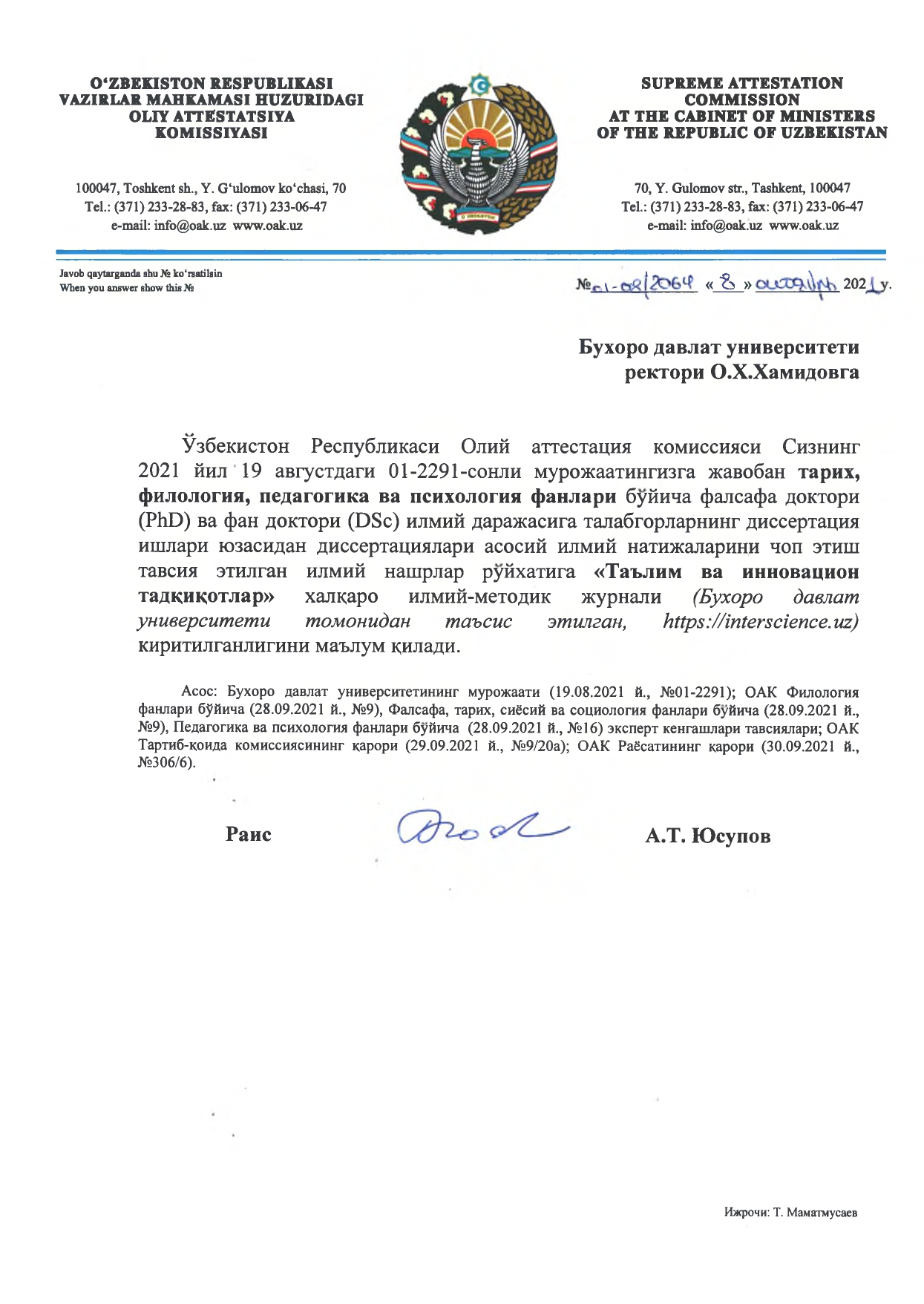PSIXOFIZIOLOGIYA FANINING ASOSIY PREDMETI, MAQSADLARI VA VAZIFALARI
Qodirova Ozodaxon Musajon qizi –Mirzo Ulug‘bek nomidagi O‘zbekiston Milliy universitetining magistranti
Ключевые слова:
his-tuyg’ular, fikrlar va kognitiv jarayonlar, asab tizimi va endokrin tizimАннотация
Psixofiziologiya - bu psixologik jarayonlar va fiziologik reaktsiyalar o’rtasidagi bog’liqlikni ilmiy o’rganadigan fan. Uning asosiy yo’nalishi ruhiy holatlar, his-tuyg’ular va kognitiv jarayonlar tanadagi fiziologik o’zgarishlarda qanday aks etishini tushunishga qaratilgan. Ushbu soha stress, diqqat va idrok kabi ruhiy hodisalarning tana funktsiyalari bilan qanday bog’liqligini o’rganish uchun psixologiya va fiziologiya tamoyillarini birlashtiradi.Maqolada ushbu sohaning tarixi,maqsad va vazifalari ko‘rib chiqiladi.
Библиографические ссылки
Cacioppo, J. T., Tassinary, L. G., & Berntson, G. G. (2007). Handbook of Psychophysiology (3rd ed.). Cambridge: Cambridge University Press.
Lange, J., & Jensen, R. D. (2022). «Recent Advances in Psychophysiology: Emerging Trends and Future Directions.» International Journal of Psychophysiology, 172, 1-10.
Bernston, G. G., & Cacioppo, J. T. (2004). «Decoding the Emotional Brain: Implications for Psychophysiology.» Psychophysiology, 41(6), 123-136.
Davidson, R. J., & Pizzagalli, D. A. (2009). Neuroimaging of Emotion: A Meta-Analysis. In M. Lewis, J. Haviland-Jones, & L. Feldman Barrett (Eds.), Handbook of Emotions (pp. 215-232). Guilford Press
Ekman, P. (2003). Facial Expressions of Emotion: New Findings, New Questions. In J. Cacioppo, L. Tassinary, & G. Berntson (Eds.), Handbook of Psychophysiology (pp. 307-318). Cambridge University Press.





